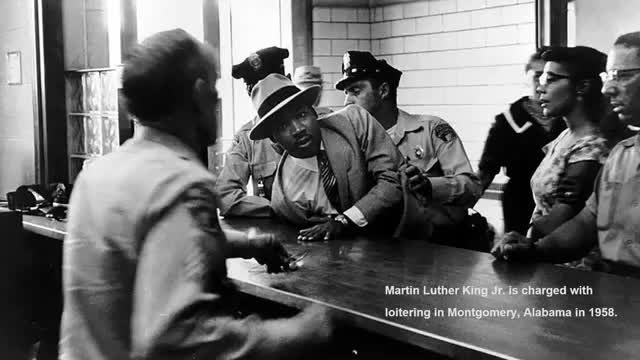Tony Bradburn urges fuller reading of Martin Luther King Jr.'s legacy at Hoffman Estates commemoration
Get AI-powered insights, summaries, and transcripts
Subscribe
Summary
At a Hoffman Estates Martin Luther King Jr. program, Tony Bradburn argued that public memory has sanitized King's radical critiques of economic and political power, urged attendees to place King's speeches in full context, and encouraged local action to carry forward economic and racial justice work.
Tony Bradburn, a K-5 principal and former district director of diversity, equity and inclusion, told an audience at the Village of Hoffman Estates' Martin Luther King Jr. commemoration that public memory has simplified King’s message and that a fuller reading shows King pressing for economic as well as racial justice. "I called this, you know, the search for the people's king," Bradburn said as he opened his remarks.
Bradburn said scholars distinguish "collective memory" — the simplified image of King commonly circulated in media and ceremonies — from the more contested academic history. He said conservative and political actors have repeatedly taken portions of King's rhetoric out of context to present an image of King as a figure of color-blind reconciliation, rather than as an advocate who challenged wealth and power structures.
Bradburn pointed to public-opinion numbers and political maneuvers to illustrate his point. He told attendees that King’s approval rating late in his life was about 25 percent and said the holiday's adoption and later presentation of King’s image involved political shaping. Bradburn quoted King's famous line, reading: "I have a dream ... that my four little children will one day live in a nation where they will not be judged by the color of their skin, but by the content of their character," and then urged the audience to hear that line in context rather than as an argument for erasing the significance of race.
Arguing King’s work encompassed economic remedies, Bradburn paraphrased and cited King’s writing on compensation for centuries of unpaid labor and the need for broad economic aid aimed at the disadvantaged of all races. He said King linked racial justice to economic justice, and that King’s later activism — including the Poor People’s Campaign — pushed for systemic reform beyond desegregation. Bradburn summarized King’s stance on civil unrest by quoting: "a riot is the language of the unheard," and added that King also stressed the need to address the underlying conditions that produce unrest.
Bradburn recommended practical responses for audience members: read King’s full speeches and writings, challenge misquotes and oversimplifications when they appear, and engage locally. He closed with a call for individual action, asking attendees to write down "one way you can help MLK breathe" — such as educating others, making a phone call or taking a concrete step in their workplace or community.
Audience members participated in short table conversations after the talk, offering local ideas such as keeping King’s full arguments alive through education and confronting mis- and disinformation about his legacy. Bradburn invited attendees to use those conversations to inform local work on racial and economic justice.
